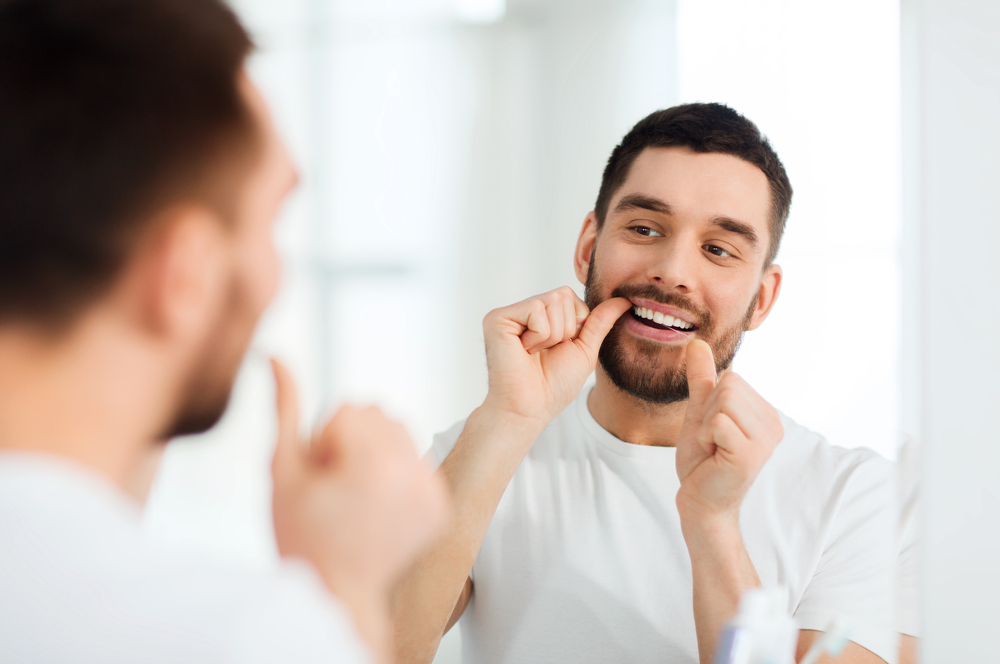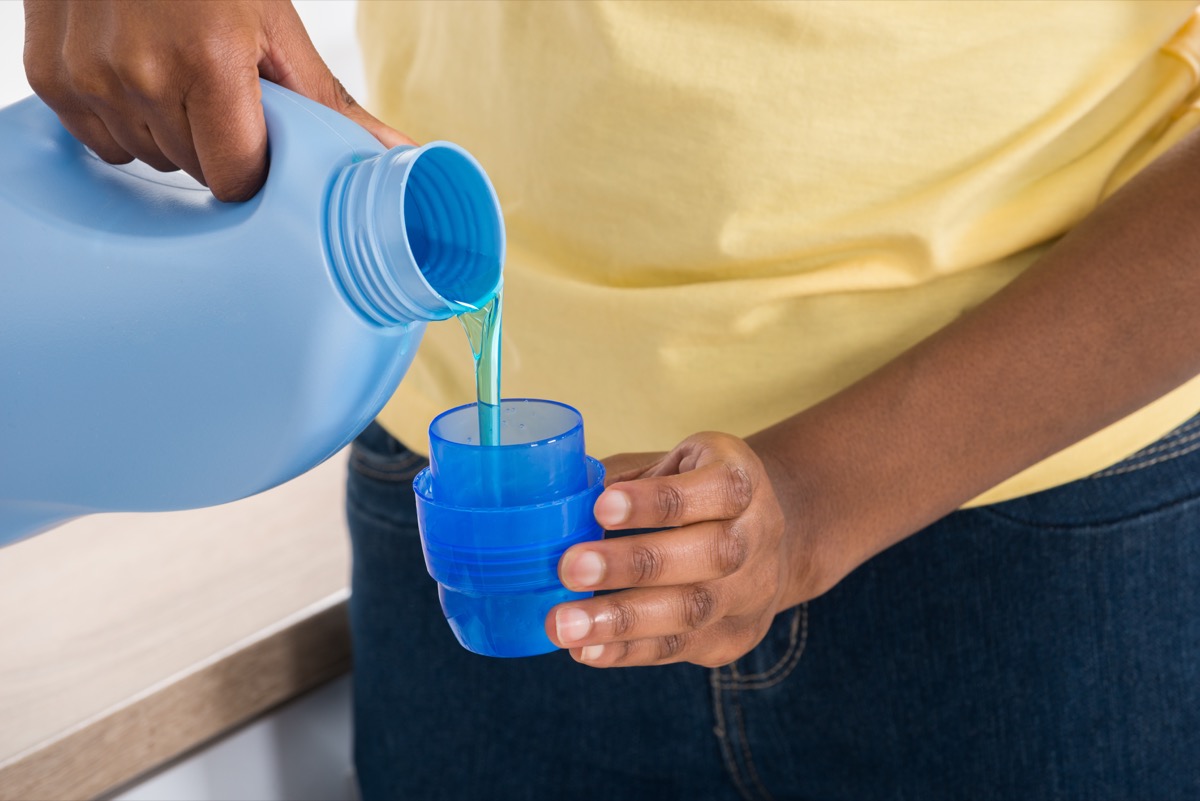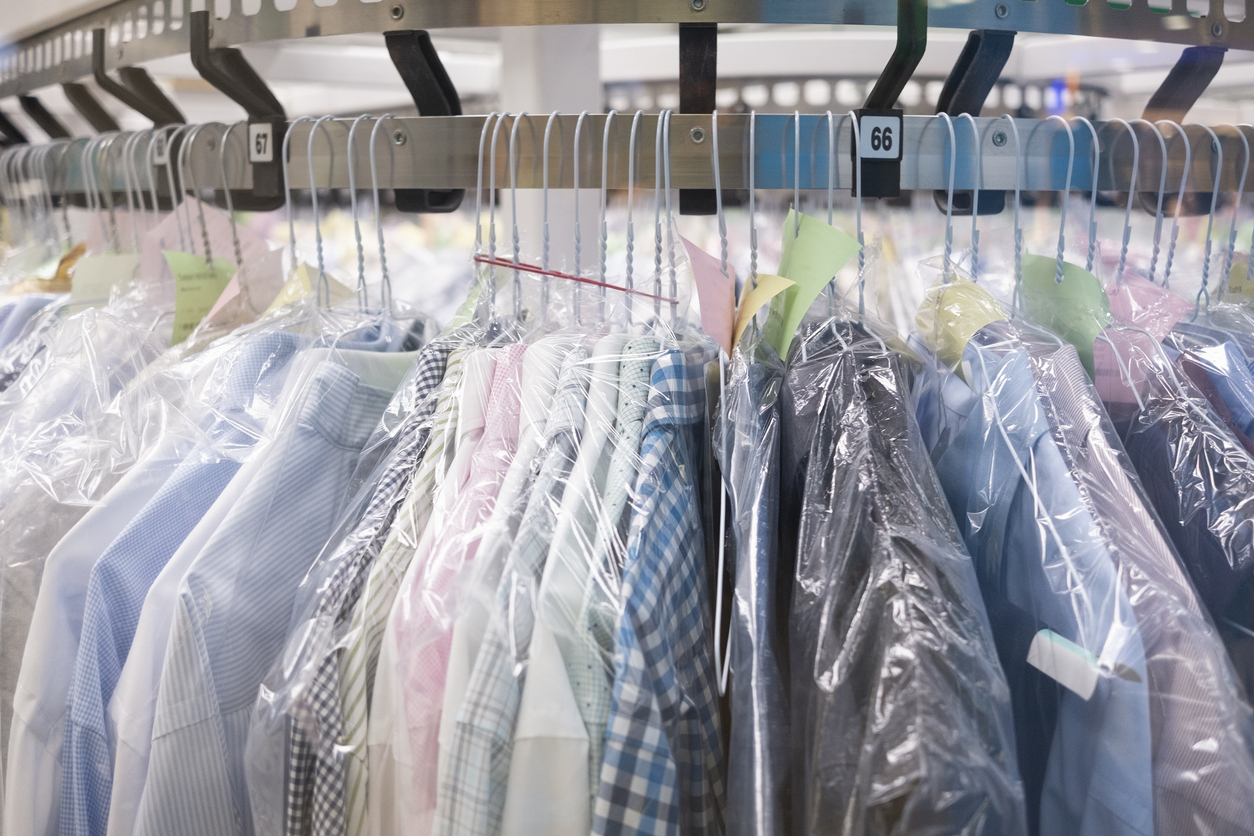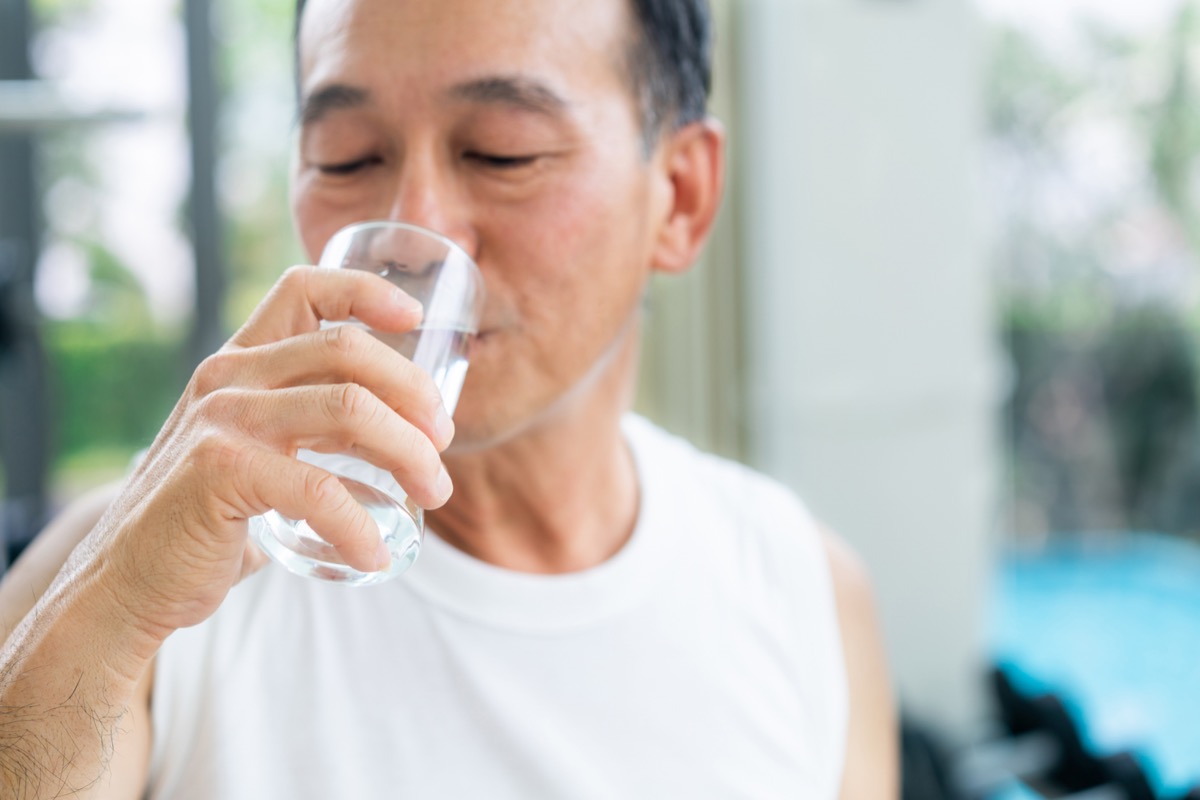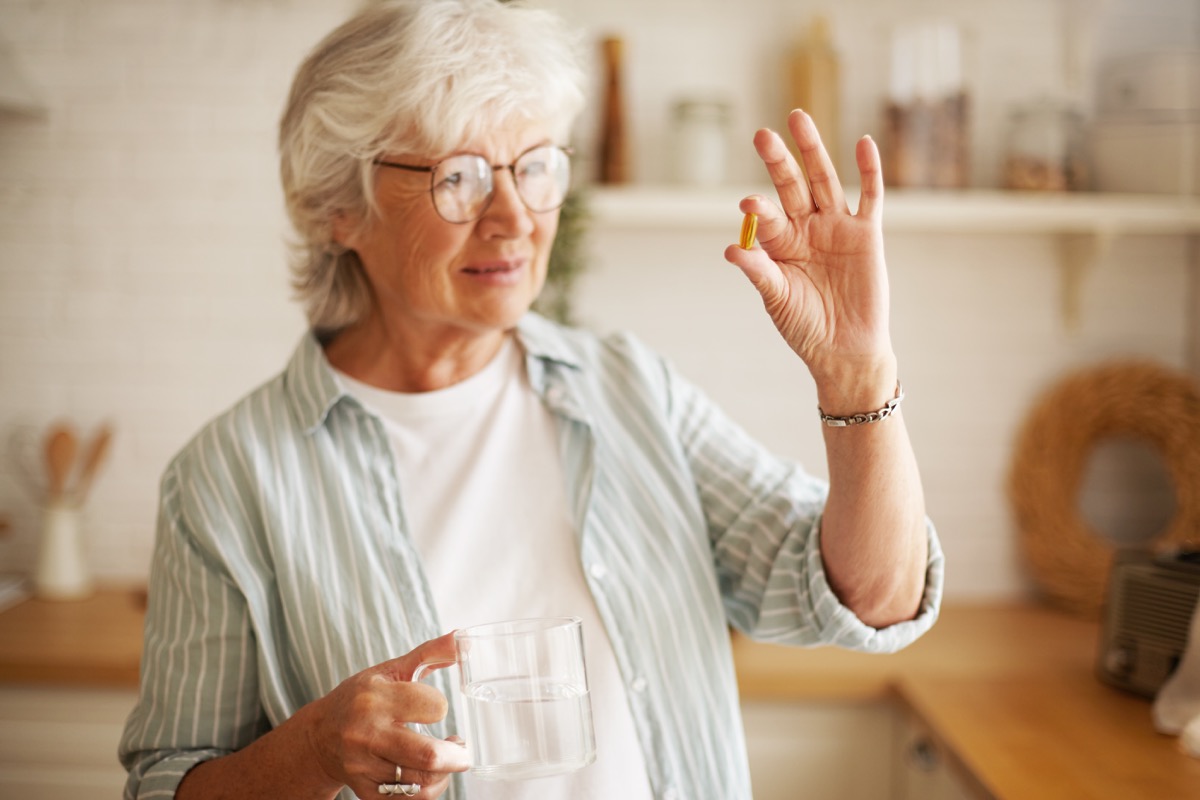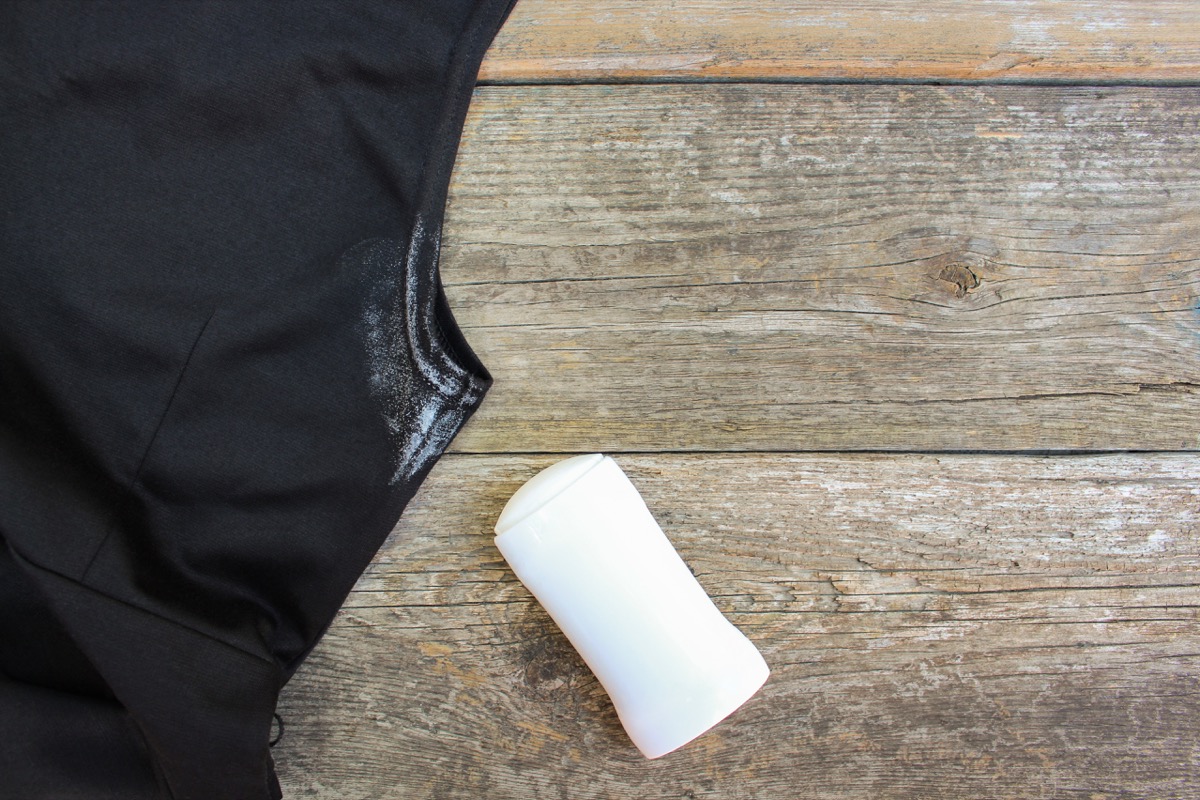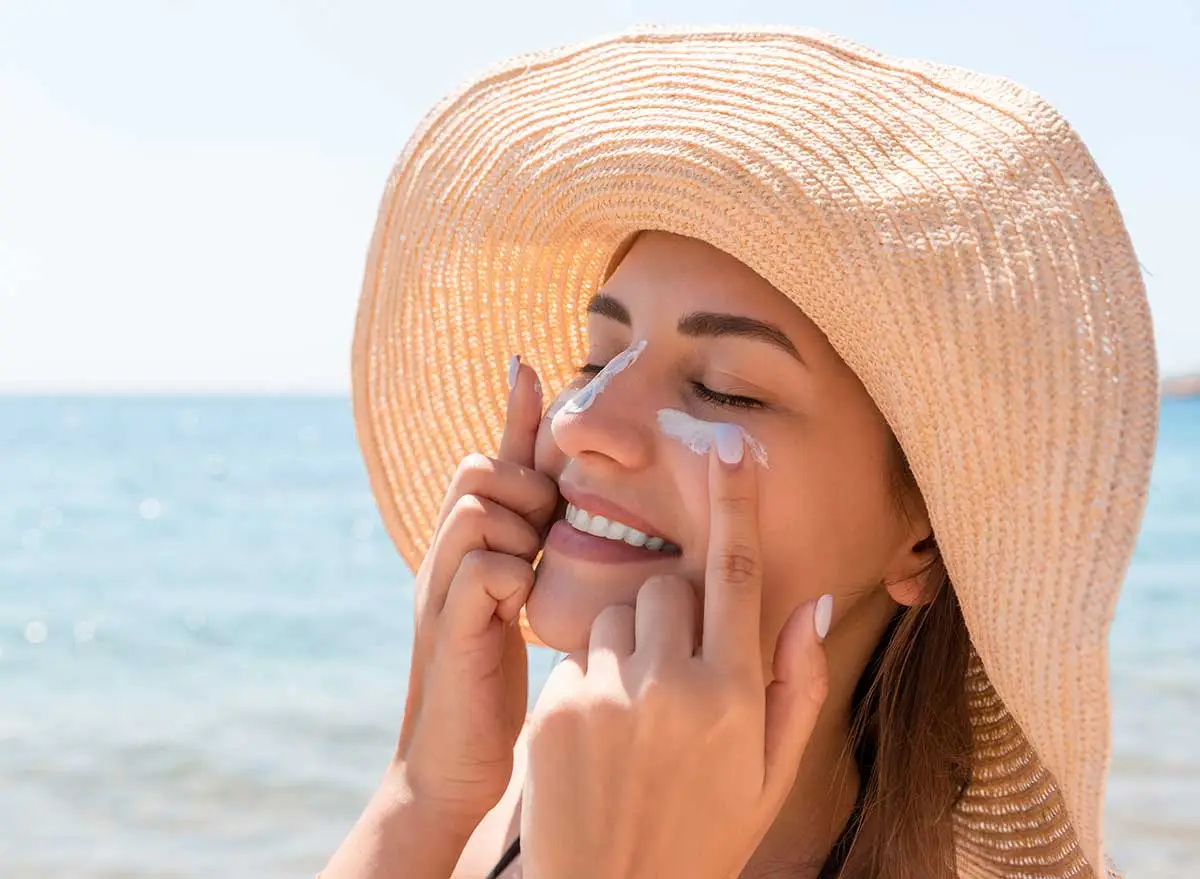According to the National Cancer Institute, while stress doesn’t directly lead to cancer, your body’s response to that stress—via things like increased blood pressure, rapid heart rate, and elevated blood sugar levels—can inevitably lead to cancer if left untreated. In recent years, links have also been discovered between psychological stress and cancer, seeing as people under duress may develop certain bad behaviors like “smoking, overeating, or drinking alcohol.” And if you want to lower your stress levels, check out these 18 Silent Signs Your Stress Is Harming Your Health. Are you keeping up with your oral hygiene? Brushing, flossing, and using mouthwash are all essential to staying healthy. In fact, a 2018 study published in the Journal of the National Cancer Institute found that gum disease is associated with a 24 percent increase in both lung and colorectal cancer, meaning you need to start taking care of your mouth ASAP. In a 2014 review published in the Journal of the National Cancer Institute, German scientists analyzed data from 43 studies and found that for every two additional hours of sedentary behavior a day, a person’s risk of colon cancer, endometrial cancer, and lung cancer increased by 8 percent, 10 percent, and 6 percent respectively. Even if the sound of your favorite late-night show is the only way you can fall asleep, you might want to bid adieu to this bad habit. A 2010 analysis in the journal Environmental Health Perspectives found that the artificial light that emanates from your TV screen is linked to both breast and prostate cancer. “Light at night is likely to be one of a number of factors that contributed to the increase in breast cancer over the last few decades,” Les Reinlib, program director of the National Institute of Environmental Health Sciences, said in the study. Besides, too much screen time before bed is one of the 25 Things You’re Doing That Would Horrify Sleep Doctors. There’s something so soothing about scented candles. But though they relax you almost immediately in the moment, they can also do a whole lot of damage down the road. According to the United States Environmental Protection Agency (EPA), scented candles are full of potentially dangerous chemicals like benzene and toluene, and breathing them in regularly could increase your risk of cancer. “For a person who lights a candle every day for years or just uses them frequently, inhalation of these dangerous pollutants drifting in the air could contribute to the development of health risks like cancer,” South Carolina State University chemistry professor Ruhullah Massoudi told HuffPost. And if you need a relaxation method that won’t hurt you, check out the 30 Science-Backed Ways to Relax When You’re Totally Stressed Out. According to an oft-cited 2008 study published in the journal Cancer, the smoke created from burning incense could cause cancer, too. In the study of more than 60,000 cancer-free individuals between the ages of 45 and 74, researchers discovered that the long-term use of incense was associated with an increased risk of squamous cell carcinoma of the respiratory tract, a type of lung cancer. So, while the occasional sandalwood incense stick might be nice every once in a while, making a daily habit out of this scented ritual could do your body major harm. Doing your laundry seems harmless enough, right? Well, not so much. According to the Environmental Working Group, some laundry detergents contain 1,4-dioxane, a chemical that could potentially be cancerous. In past research, animals exposed to the chemical had higher rates of liver tumors than those who weren’t exposed. So be sure to choose your detergent wisely. And it turns out, using a dry cleaner isn’t a safer alternative when it comes to getting your clothes clean. Reports from the EPA have found that perchloroethylene or “perc”—a chemical used by the majority of dry cleaners in the U.S.—could cause leukemia, as well as both liver and kidney cancers. Look for a business that doesn’t use harmful chemicals, or skip out on the dry cleaner altogether. Filling up the car with gas is something most people do on a regular basis. Adding just a little bit more gas in after your nozzle clicks off, however, could be the thing that turns this habit into a cancer-causing one. The EPA notes that the extra fuel could mess with the pump’s vapor recovery system, potentially releasing cancer-causing chemicals like benzene into the air you breathe. Recent reports estimate that as many as three million Americans now work the night shift. And though it might not seem like working when it’s dark out and sleeping when it’s light would do any major bodily harm, a 2013 study published in the British Medical Journal found that the graveyard shift can increase a person’s risk of breast cancer, most likely due to melatonin suppression. Drinking plenty of water throughout the day keeps everything in your body working properly. It also dilutes harmful substances in the urine, potentially helping to reduce your risk of bladder cancer, according the Cleveland Clinic. So drink up—not just because it reduces your cancer risk, but also because These Are the Effects of Dehydration on Your Body, According to a Doctor. But if your go-to water comes from a plastic bottle, you might want to switch to something that’s glass, steel, or ceramic. According to the nonprofit organization Breastcancer.org, research suggests that plastic beverage containers can contaminate liquids with potentially harmful chemicals like BPA, a weak synthetic hormone that can mess with your body’s hormonal balance and increase your risk of breast cancer. There are still mixed opinions on whether plastic bottles actually cause cancer or not, but it’s best to steer clear. Not a fan of fruits and vegetables? Well, according to Harvard’s School of Public Health, eating a variety of fruits and vegetables on a daily basis has been shown to lessen your chances of developing cancer. So it may be worth it to find a fruit or veggie or two that you can handle. And for more foods you should stock up on, here are 33 Foods That Fight Aging from the Inside Out. A 2018 research analysis published in the International Journal of Environmental Research and Public Health found that a very credible threat to your overall health exists in your rice: arsenic. Although the levels of arsenic can vary in rices across the world, any product that contains rice—including cereal—poses a risk of developing cancer. According to an oft-cited 2002 study published in the Lancet journal, there’s strong evidence showing a link between hormone replacement therapy (HRT)—often used by women during menopause—and an increased risk of a breast cancer diagnosis. So, with that said, be sure to discuss all the risks of HRT with your doctor before heading down that path. And for more tips that will keep you safe as you age, here are the 40 Signs of Poor Health No One Over 40 Should Ignore. Though taking the right dose of daily supplements can prove to be beneficial to your health, a 2015 study from the University of Colorado Cancer Center suggests that consuming more than the daily recommended dose of any supplement could lead to cancer. Specifically, the study discovered that even taking more than the recommended amount of beta carotene supplements increased lung cancer risk by 20 percent. When people eat meat, they tend to like it charred. The issue with this, however, is that cooking meat at high temps can form chemicals that cause changes in the DNA—changes that can increase your risk of cancer, says the National Cancer Institute. If you do cook meat, make sure it’s not getting over-done. Or, even better, ditch the animal product altogether: A 12-year study published in the journal Nature in 2009 found that the incidence of cancer was much lower with vegetarians compared to meat-eaters. Veggie dogs might be the only safe summer BBQ option when it comes to preventing cancer. In 2015, the International Agency for Research on Cancer officially classified processed meat as a carcinogen, noting that eating just 1.8 ounces a day can increase your risk of colorectal cancer by 18 percent. Having a drink here and there is totally fine, but when you’re having more than one or two drinks per day, that’s when problems arise. According to the American Cancer Society, overdrinking has been linked to a higher risk of throat, liver, colon, and breast cancer. So when you’re out, make sure to pace and limit yourself. And for more ways alcohol can hurt you, read up on New Study Shows Even a Small Amount of Alcohol Ages Your Brain. Sure, it’s quick, easy, and delicious, but microwave popcorn is also dangerous. The snack contains the chemical diacetyl in its butter flavoring, which can actually lead to lung issues, according to a 2013 study published in the PLOS One journal. Diacetyl is also one of the chemicals in e-cigarettes that has been causing concern as they pertain to cancer. You might want to switch out your artificial sweeteners for something less harmful. As the National Cancer Institute points out, though conclusive links haven’t been established between the consumption of artificial sweeteners and cancer, studies conducted on animals have found that common substitutes like saccharin, aspartame, sucralose, and cyclamate can lead to cancer of the bladder and brain, plus lymphoma and leukemia.ae0fcc31ae342fd3a1346ebb1f342fcb While it is true that all soda poses a risk to your health, it’s diet soda, with its copious amounts of aspartame, that has been shown in multiple studies to lead to blood-related cancers, according to the National Cancer Institute. For the sake of your health, you’d do best to indulge in the occasional full-sugar soda and stick to water as much as possible. If you haven’t ventured into natural deodorants yet, this fact will make you stock up immediately. Although the American Cancer Society says no clear link has been made between deodorant and breast cancer at this time, research has suggested that the aluminum compounds in deodorant that keep you from getting sweaty could cause damage after being absorbed by the skin, changing the estrogen receptors and potentially leading to breast cancer. Get ready to toss your baby powder immediately. A 2010 study published in the journal Cancer Epidemiology, Biomarkers & Prevention found that using the product—also called talcum powder—can increase a woman’s risk of endometrial cancer by 24 percent when used on the perineal area, or the area surrounding the genitalia. Research published in the Journal of Applied Toxicology has shown that parabens—chemical compounds used as preservatives in a countless number of makeup and skincare products—are easily absorbed through the skin and can cause a spike in the growth of breast cancer cells. Yes, even the simple act of breathing in a polluted area can increase your cancer risk. According to the World Health Organization as cited by the American Cancer Society, the cancer-causing substances in the air caused 223,000 deaths from lung cancer in 2010 alone. In addition, pollution has also been linked to an increased risk of bladder cancer. Most people think they don’t need to wear sunscreen unless they’re going to the beach. But this misinformation is leading to a whole lot of skin cancer cases. According to the Skin Cancer Foundation, you should slather on SPF year-round—no matter the season or the weather—to decrease your risk. Not many people are on airplanes right now—and that could be a good thing. Flying too often exposes passengers to high levels of UV radiation, so it makes sense that frequent flyers are putting themselves at serious risk of skin cancer. This prolonged risk was scientifically proven by a 2015 study published in JAMA Dermatology, which found that at 30,000 feet, the UV levels are twice that of those on the ground. According to the American Academy of Dermatology, even one trip to the tanning salon can “increase users’ risk of developing melanoma by 20 percent, squamous cell carcinoma by 67 percent, and basal cell carcinoma by 29 percent.” So, for the sake of your health, it’s better to skip this venture altogether. Though you might like falling asleep to your favorite podcast, you should make sure to get your phone as far away from your head as possible while you’re sleeping. In 2017, the California Department of Public Health came out with guidelines to minimize people’s exposure to the radio-frequency energy cell phones release, which has been linked to brain cancer. Among their suggestions was “keeping the phone away from the bed at night.” And for more ways to keep your body cancer-free, check out these 27 Cancer Prevention Tips Doctors Want You to Hear.
